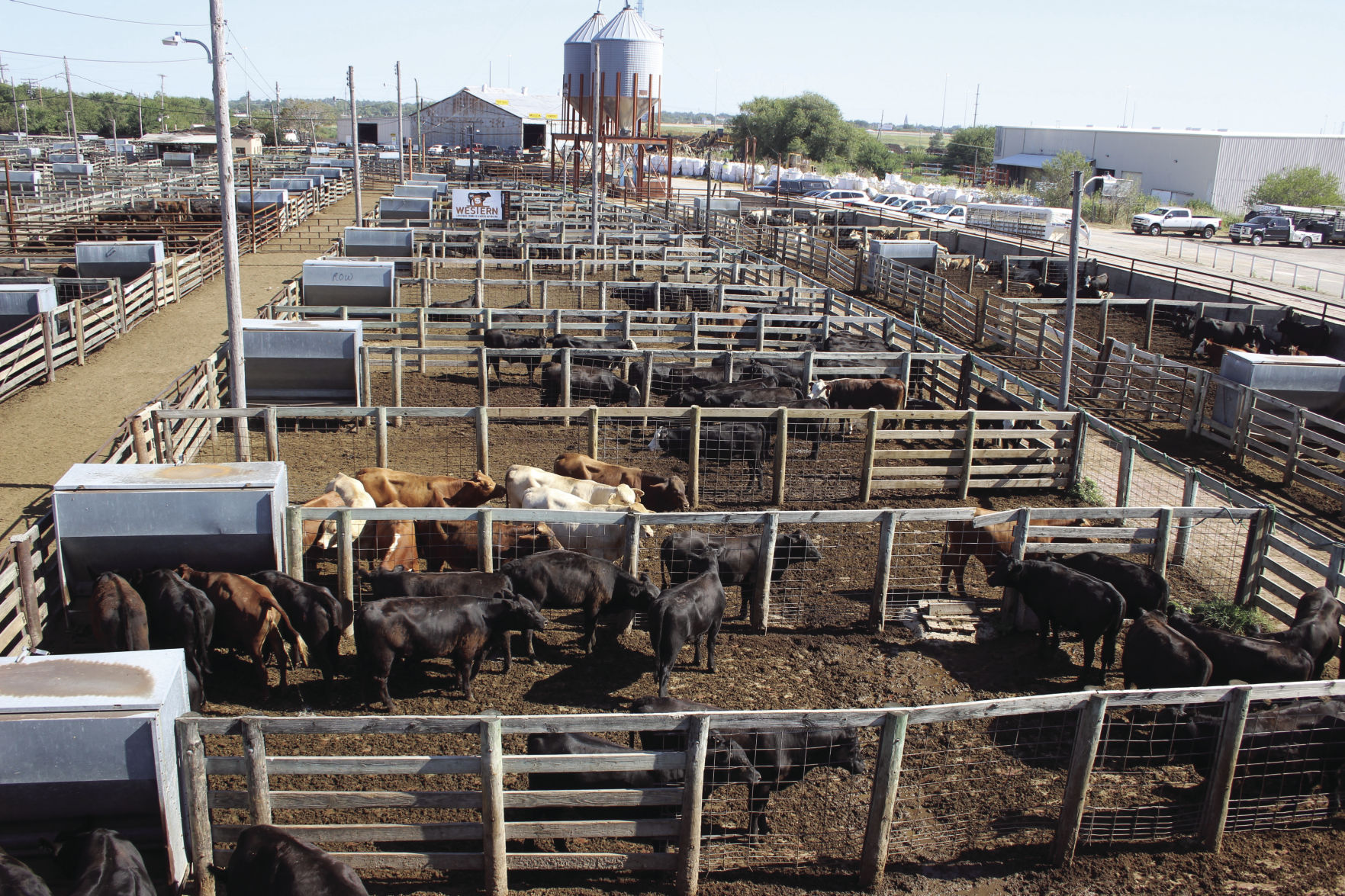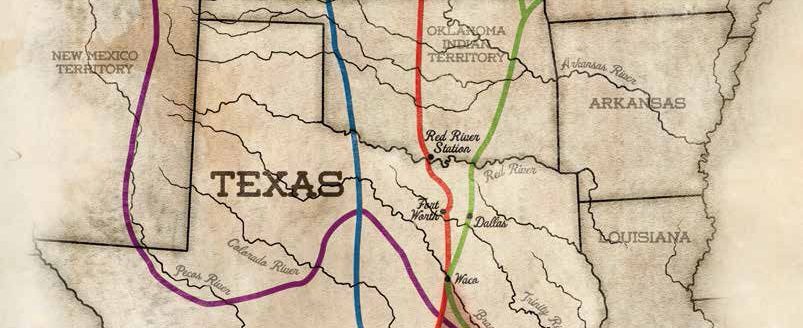The bellers and snorts of cattle waiting to go into the auction ring are a familiar background noise for Kelli Payne as she discusses how she became the first female Oklahoma City Stockyards general manager. Even with her new title keeping her phone ringing around the clock, she cannot resist a chance to shake a new acquaintance’s hand, take time to gab with old friends or gather impressions of the current cattle market from seasoned producers.
“I never dreamed I would be where I’m at today,” Payne said. “This was never on my radar screen. I feel like I’m kind of the shiny penny right now.”
The OKC Stockyards, known as the world’s largest stocker and feeder cattle market, was founded in 1910. Originally all sales were private treaty, but in 1961 it became a live auction. Payne says she believes if the leaders at the time had not had the foresight to convert into a live auction, it might have meant the downfall of the yard. Up until the 1970s, the stockyards were a delivery point for cattle that were hedged. Nowadays, it is the last terminal market in existence. Additionally, it is on the National Register of Historic Places and a gem among many Oklahoma landmarks, a fact Payne is keen to promote.
Throughout her life, Payne has always found her way back to the OKC Stockyards, which is closely tied to her childhood. Payne grew up in Tabler, Oklahoma, and her father started taking her to the yards when she was 5. She remembers scrubbing many a stock tank while earning her keep on sale days.
“You can’t wash it out of your system once you start here,” Payne explained.
A fifth-generation cow-calf producer, Payne began college in 1994 at Oklahoma State University, and traveled back and forth from Stillwater and the OKC Stockyards to work and help her father sell cattle. Her path through college was non-traditional. She frequently took semesters off to work and to take advantage of exciting opportunities.
Some of those life experiences included working for Oklahoma Congressman Wes Watkins, assisting non-profit organizations, managing the Stillwater and Guthrie Main Street Districts, a communications internship with Select Sires and many a day working at the OKC Stockyards. In 2014, she graduated with a bachelor’s degree in animal science and livestock marketing.
Then a year and a half ago a position called yards liaison was created to promote the OKC Stockyards and then manager, Rob Fisher, asked Payne to accept the job. She jumped at the opportunity and settled in at a place she has gravitated toward her whole life. Fast-forward to April 2019 and Payne had been selected as the new general manager after Fisher retired.
“To think that these folks had enough faith in me to trust me in this position, it was really earth shattering,” she said. “After more than 100 days on the job, I think I’m still in awe of it.”
In their 109 years in business, there have only been six general managers, and Payne is the first woman. She says she has never felt the men in her profession ever treated her differently because of gender. However she recognizes her approach to the job is probably not the same as a man’s.
“Being a female, you kind of want to fix things and because you are kind of a caregiver,” Payne said. “And I do feel a need to be more of a spokeswoman because I am a female.”
The year 2019 has been a pivotal year for woman in Oklahoma agriculture and beyond. Blayne Arthur is now the first female Oklahoma Secretary of Agriculture, Jennifer Houston is president of the National Cattlemen’s Beef Association and, of course, Payne is now the first female OKC Stockyards general manager.
“We are in a great position to tell the story of agriculture,” Payne said. “I’d say this is the best time to be a woman in agriculture. Female operators are one the fastest growing segments in Oklahoma agriculture.”
Keeping the stockyards on track
Payne says the stockyards are on track to sell 400,000 head this year. When she took on the role she did not have plans to make extreme changes to the auction because she knows it has been a well-run and successful business. However, with her background with main street districts, marketing and communication, Payne sees more opportunities to promote the OKC Stockyards as well as agriculture itself in her new position.
“Folks are so far removed from the agriculture lifestyle these days,” she said. “We used to say we’re three generations removed but I think it’s getting further away. There’s a real challenge of promoting something that historic, but still a viable market, and at the same time also showing the face of the hardworking farmers and ranchers, not just in Oklahoma but in surrounding states. There’s a pretty good chance no matter what state you’re in, either cattle have come here from your state to be sold or bought cattle have gone back to your state.”
Additionally, Payne has been working to update the facilities by replacing old wooden pens with pipe fencing, especially in high-pressure alleys or sorting alleys. Also since hogs are no longer sold at the stockyards anymore, the hog barns are being converted into new pens for feed, water and rest and a seasonal event center for special occasions.
Payne says above all she values the teamwork her employees demonstrate and vows to be an open communicator for her employees and the cattlemen and cattlewomen doing business at the OKC Stockyards.
“Most of our customers are just smaller producers and we love them,” she said. “It doesn’t matter if you run 2,000 head or you’ve got 30 momma cows. At the end of the day we are a service and if you can’t deliver on that, you’re not going to last very long.”
It is easy to see the pride and confidence Payne has in the producers who buy and sell at OKC Stockyards, she cannot help but smile when she talks about them.
“We’ve got probably the most intense buying power of any barn in the United States,” she said. “I’d put our buyers up against anyone.”
Payne knows the buyers, employees and market as well as anyone and the commission and order buyers believed handing the reins to her would be an easy transition for everyone.
“It would be different if it was somebody new that was dropped in here,” she explained. “We all want what’s best for this market.”
Payne says the best advice she can give to young people with big dreams in the agriculture industry comes from an unlikely source—a dirty Santa gift. She says she fought tooth and nail for the wall sign that says “Work hard and be nice.” Additionally she says her work and life experiences have taught her to never give up, never stop learning and never miss an opportunity to visit with someone who can offer wisdom—because all advice, even the bad will come in handy.
“We go through our day to day lives and we never know who’s watching and what kind of impact we’re leaving on others until something like this happens.”
Lacey Newlin can be reached at [email protected].

